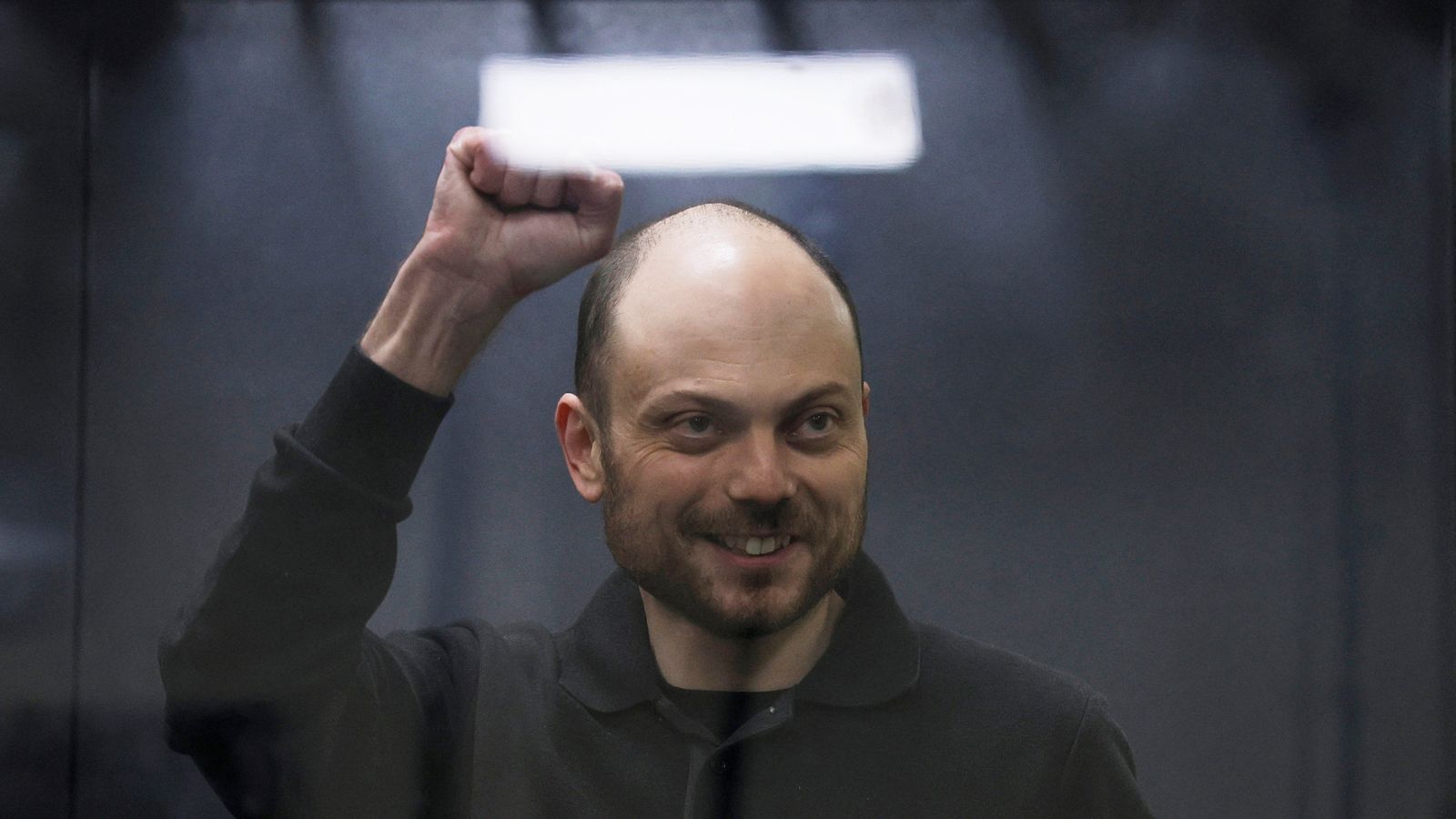The government has rejected calls to consider a prisoner swap to free dual British-Russian citizen Vladimir Kara-Murza following warnings he could be “next” following the death of Alexei Navalny.
Conservative MP Bob Seely raised the case of Mr Kara-Murza in the Commons following a government statement on Mr Navalny, the Russian Opposition leader who died last week while being held in an arctic penal colony.
Mr Kara-Murza, a former journalist, spent years as a politician opposing Vladimir Putin before he was jailed for 25 years after being convicted for treason last year.
Raising his case in the House of Commons, Mr Seely said Mr Kara-Murza was “now the most high-profile political prisoner in Russia”.
Although he acknowledged that a prisoner swap “encourages state hostage taking”, he said Mr Kara-Murza’s wife, Evgenia, was “adamant that she now wants everything possible done to get Vladimir out” because of the fragile state of his health.
Politics live: Possible move against Russia would send ‘very powerful signal’
“If Putin can kill Navalny, he can kill Kara-Murza,” Mr Seely said.
Politics live: Possible move against Russia would send ‘very powerful signal’
Henry Staunton: Former Post Office chairman investigated over bullying before dismissal, Kemi Badenoch claims
Rishi Sunak: Ofcom launches investigation into PM’s appearance on GB News
“There is some criticism that the government have not done everything possible in the past.
“Will the minister reassure me that every option and every conceivable course of action to get Kara-Murza out, potentially including negotiated swaps with Russian spies in Sweden or wherever will be looked at? Otherwise, he will be next.”
Mr Docherty replied: “As my honourable friend said, we do not and would not countenance a policy of prisoner swaps, but of course we continue to make every effort to support Mrs Kara-Murza and to seek the release of Vladimir.”
Mr Kara-Murza, 41, is a father of three and former journalist who holds Russian and British passports.
He was accused of treason and discrediting the military by prosecutors after he criticised the country’s invasion of Ukraine.
His 25-year sentence, which matches the sentence requested by prosecutors, is the harshest of its kind since Russia’s invasion began in February 2022.
Mr Kara-Murza has criticised his prosecution and compared it to one of Soviet dictator Josef Stalin’s show trials in the 1930s.
Mr Navalny’s death was reported on Friday, and while the cause of death remains unknown, Western leaders have blamed Mr Putin’s regime, with Mr Docherty arguing it was right to describe his death as “murder”.
“We do seek to hold the state and the Russian leadership to account,” he said.
The prison authorities in Russia claimed Mr Navalny – one of Mr Putin’s most vocal critics who shone a spotlight on the corruption of the state – felt unwell and lost consciousness following a walk at a penal colony within the Arctic Circle.
On Monday, his spokesperson revealed his body would not be released for a further 14 days, writing on X: “The investigators told the lawyers and Alexei’s mother that they would not give them the body.
“The body will be under some sort of ‘chemical examination’ for another 14 days.”
Read more:
CCTV appears to capture Navalny’s body being transported
Putin critics like Navalny need Western support – Litvinenko widow
Her comments come after Mr Navalny’s wife claimed he was poisoned with a substance like novichok, a nerve agent from the Soviet era.
She accused the Russian authorities of hiding his body as they wait for traces of whatever agent killed him to disappear. His mother and his lawyer have thus far been prevented from seeing his body.
Mr Navalny’s death has focused attention on Mr Kara-Murza, with Alicia Kearns, the chair of the Foreign Affairs Select Committee, also calling on the government to do “everything in its power to bring our British citizen home to safety”.






















